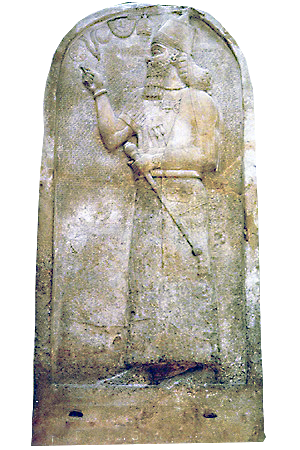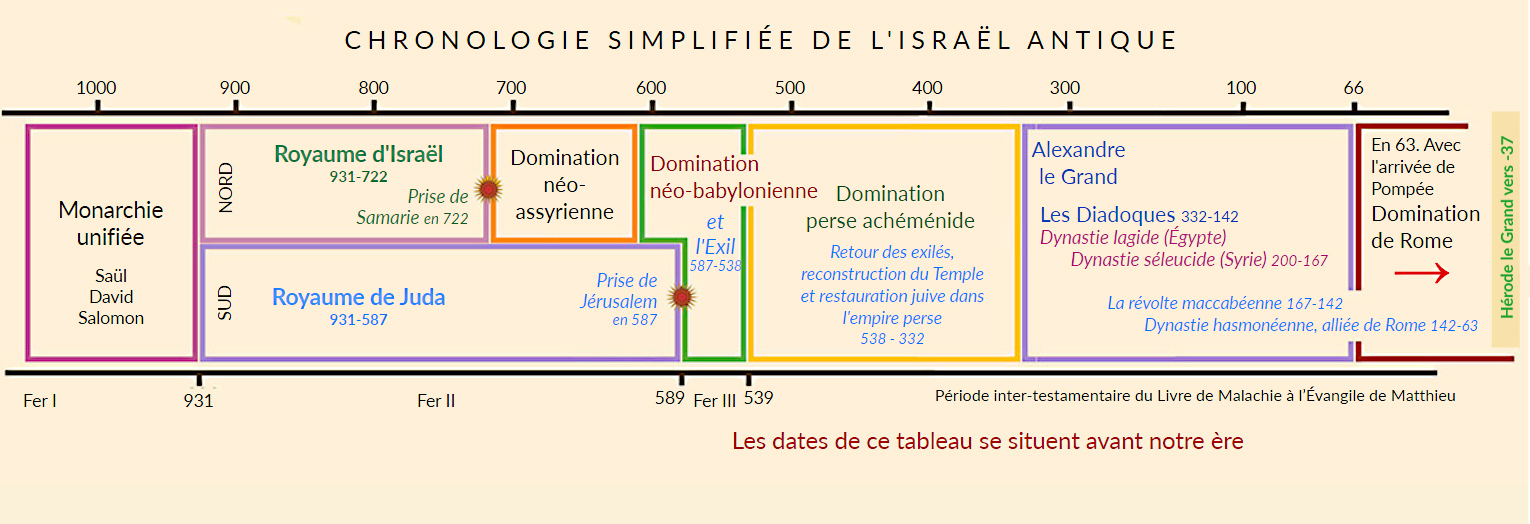
Bible, History, Archaeology
History,
Archaeology
Home > Old Testament > The Story >
A simplified chronology of ancient Israel
Introduction
From 931 BC, two neighboring kingdoms coexisted, with Samaria and Jerusalem as their respective capitals.. Several of their kings appear outside the Bible: around 852 BC, the monolith of Kurkh (below) mentions king «Ahab» (1 Kings 16-22), of the kingdom of ’Israel«; around 827, the Black Obelisk represents king »Jehu« (2 Kings 9-10), of the »house (royal) of Omri« (1 Kings 16), prostrate before the Assyrian king Salmanazar III, to whom he pays tribute. According to the Bible, these two kingdoms were once one, with Jerusalem as their capital and a dynasty founded by David.

Image opposite : lhe Kurkh monolith.
Assyrian monument, 2.2 meters high, containing a description of the battle of Qarqar in its final section © British Museum, London/Théo Truschel.
The monolith tells the story of Salmanazar III's campaigns in western Mesopotamia and Syria, during which he fought against the countries of Bit Adini and Karkemish.
The final part of the narrative inscribed on the monolith contains a countdown of the belligerents in the battle of Qarqar, in which a «alliance of twelve kings» fought Salmanazar III in the Syrian town of Qarqar. This alliance, comprising eleven kings, was led by Irhuleni, king of Hamah, and Hadadezer, king of Damascus, but it also mentions a strong contingent led by Ahab, king of Israel.

Find out more
LEMAIRE André, History of the Hebrew people
The origins of the Hebrew people are not directly accessible to the historian: no external testimony speaks of Israel before its mention in the stele of the year 5 of the pharaoh Merenptah (1207 B.C.), and the first redaction of the gesture of the origins of Israel, in the form of the genealogy of the patriarchs Abraham, Isaac and Jacob-Israel, probably dates only from the time of the unified kingship under David and Solomon, or from a later period?
Collection What do I know?
Presses Universitaires de France, 2019.

